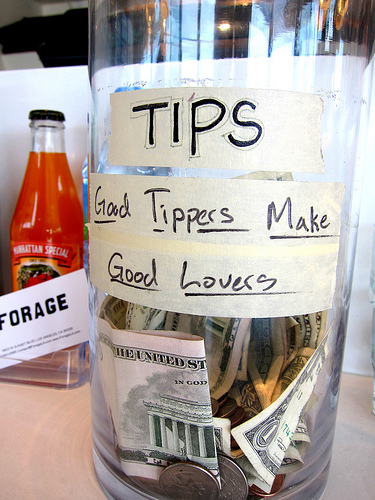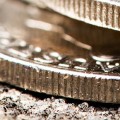Credit Cards – Curse or Blessing?
When my wife and I came to America eight years ago, we did not have any US credit history – just like every new expat. And we didn’t really care, because we did not even know how long our American adventure would last and how long we would stay here. We paid our cars in cash from savings that we built up in Germany and we weren’t even thinking about buying a house back then. Both of our parents were born a few years after WWII, so they learned first hand from our grandparents to save what they earned and only spend money on the things they really needed. This behavior rubs off on the generations to come, but of course slows down and eventually dies down, if money is not tight all the time. Fortunately, my wife and I both continue to save as much as we can, although we are spending a lot more than our parents and grandparents did.
Long story short, after arriving in the United States, we just enrolled for a checking account and paid everything with our debit card or cash. We just didn’t feel the urgency of having a credit card on hand and quite frankly, we didn’t really understand how it would benefit us. Actually, we just liked to mutter about the nonsense of building a credit history, if you have savings. Why should we apply for credit, if we have the money to pay our cars and everything else we need in cash? Banks just want you to miss a payment so that they can charge you horrendous interest rates, right? You wouldn’t believe how many Americans are having thousands of dollars in credit card debt, because they spend more than they have.
Well, banks want their customers to overspend and not pay their balance in full. Besides annual fees, that’s another way how they make money – with interest rates of usually 11%-25% on the balance. But they also charge businesses a pretty hefty fee for every transaction made by their cards. That’s money that the store owners have to pay, not the customers. Overall, banks make a lot of money with every new person using their card, so they are willing to spend some to lure them in.
A Change of Mind
It took us about a year until we realized, that we like America so much, that we will probably stay a little longer here. But not in the apartment complex that we were living back then. Our noisy neighbors just annoyed the heck out of us, so we really wanted our own place. Moving apartments didn’t really help, because we just got different kind of noisy neighbors. Anybody else know what I’m talking about?
That made building a great credit history in short a necessity and we started signing up for credit cards. We didn’t really know how to build a great credit history from scratch, so we just did our best and built up a good enough credit to be approved for a loan a year later.
It wasn’t until years later when I was looking more into the benefits of having a credit card, starting from a pretty sweet sign up bonus to all the other perks that you get just by using credit cards instead of other forms of payment.
If you’re a shopaholic or have a history of just being amazingly irresponsible with money, you should stop reading here and read articles like this one instead to help get your finances in check. Everybody else who doesn’t really see the benefit of credit cards yet, please read on.
Credit Card Benefits
First of all, banks are willing to pay bonuses of up to 500 dollars or 50,000 frequent flyer mile/points just to land a new customer. That’s pretty easy money for you, especially if the card doesn’t have an annual fee like the Chase Freedom or Discover card. And even if the card comes with an annual fee, it is common that the bank will waive it for the first year. That means you have 12 months to decide whether to keep the card for its good benefits or just cancel it before they would charge the annual fee. So what are these benefits exactly?
Banks used to just offer perks like extra insurance on your travels and stuff that is nice to have, but most people could easily live without. Today, it’s expected that you earn cash back or miles with every single dollar that you spent with your credit card. 1% is common, but different banks offer different categories with 2% and sometimes even 6% cash back like the AMEX Blue Cash Preferred on groceries. Chase Freedom and Discover have categories that change every quarter and earn you 5% on your purchases.
The common currency for most cards are points, that you can either write yourself a check for (e.g. $100 for 10,000 points), buy gift cards with 10-20% discount (Discover Card), transfer points to a frequent flyer program at 1:1 ratio (Chase Sapphire) or redeem for goods and travel. Travel redemptions are usually rewarded with another 10-20% if paid with points.
My wife and I now have a handful credit cards each that pay us 6% on groceries (American Express Blue Cash Preferred), 3% on gas (American Express Blue Cash Preferred), 5% on various categories (Chase Freedom and Discover) and 2% on everything else (Barclay Arrival). My business takes advantage of various Chase credit cards to ramp up miles for travel upgrades.
Banks also partner up with a lot of online stores, giving you additional points and discounts when you click through the bank’s links. There’s for example the Discover Mall or the Chase Ultimate Rewards Mall, that’s offering additional discounts for hundreds of well known online stores.
Don’t Spend More, Just Pay Differently
We’re not spending more money just because our credit line would allow us to do so. We’re just paying for our everyday expenses differently. Where we used cash and debit cards before, we now use credit cards exclusively. The only exception are payments that come with a convenience fee if paid by credit card, but even that can be foregone with a combination of a points earning credit card, Vanilla Reload cards and the AMEX Bluebird checking account. Read this article from Daraius at Million Mile Secrets if you want to learn more about this combination.
To show you some numbers, let’s look at 10,000 dollars and how much you would get back, if you would pay everything with credit cards. We spend 10,000 on groceries and gas alone throughout the year, so that would be over $500 in cash back rewards right there. With cash or debit cards that would be exactly zero.
Important Lesson
The only thing you need to always keep in mind whenever you want to play credit cards to your advantage is, to ALWAYS pay your balance in full every month. Then you won’t be charged any interest and also maintain a good credit history. I highly recommend to set up auto payments as soon as you receive a new credit card. It’s fool proof and you won’t have to remember paying your balances. The other obvious lesson is not to overspend. You’ll be trusted with thousands of dollars in credit and just have to have enough self control not to spend more than you can pay back each month.
What Cards to Get
There are a ton of different credit cards available, and this site is a great tool to see what’s out there and what they offer and charge. If you’re serious about taking advantage of the money saving benefits that you can have with credit cards, please don’t shop for cards with the lowest interest rates. If low interst rates are your main criteria, you’re not planning on paying off your cards in full each month, which would be very counterproductive and won’t save you any money. Instead look for how much annual fee, if any, is charged, if it’s waived the first year and how many points you’re earning for what categories. Pick the card that suits your spending habits best and that gives you the most cash back and biggest rewards.
Personally, I like the Barclaycard Arrival Plus the best, because it comes with a 40,000 miles sign-up bonus, I can pull my FICO score for free as often as I want and I get 2 miles per dollar on everything. When I reimburse for travel expenses I get 10% cashback, which is awesome.
How Do Credit Cards Affect My FICO Score?
Your credit score (FICO) will get a small temporary hit whenever you apply for new credit. The drop is however small enough and will recover pretty soon. The longer you have a line of credit, the better. So never cancel credit cards that you don’t pay an annual fee for. If you don’t want to use them anymore, just don’t use them, but don’t cancel them. Your credit score likes long established lines of credit and the more credit you are trusted with from banks, the better your reputation aka. credit score becomes. If you signed up for a card just to cancel it after cashing in on the sign up bonus, your score will get another small hit, but nothing to be concerned about.
However, I wouldn’t recommend signing up or canceling a lot of credit cards when you’re planning to buy a house or need to finance a car within the next 1-2 years. Especially for a mortgage you would want your credit score to be the best it can be before applying for a loan.
I hope you learned a thing or two about the real benefits of credit cards and how you can use that to your advantage. Please let me know in the comments section about what cards you have and why you like them.
Photo credit: 401(K) 2013 / Foter.com / CC BY-SA









Leave a Reply